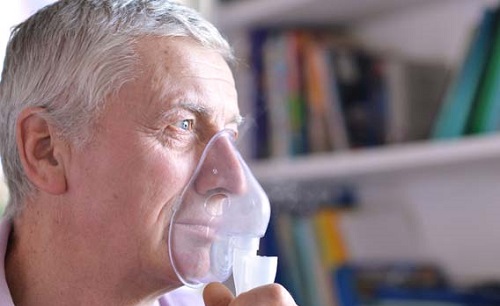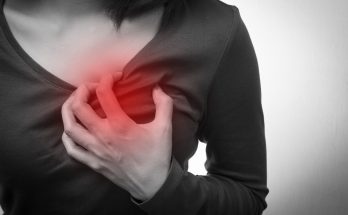A heart attack is a myocardial infarction which refers to the death of tissues in the heart region due to lack of blood supply. It is permanent damage to the heart muscle. Our heart muscle needs a rich constant oxygen supply of blood to nourish it. Blood supply to the heart muscles is done by coronary arteries. When blood walls become narrow, blood cannot flow as well as it should.
Blood clots are formed in the arteries, and the supply of blood is restricted. The heart muscle totally becomes starved for oxygen. Within a small time, the death of the heart muscle occurs due to insufficient oxygen. It causes permanent damage to the tissues, resulting in a heart attack.

Symptoms and early warning signs:
The severe chest pain and high blood pressure are recognized as the most common symptoms of heart attack in men. Although the chest pain is more severe and is difficult to bear sometimes a mild pain in the chest region can also be an early sign of heart attack. Here are some early warning signs and symptoms of a heart attack which are prevalent in men and can help you diagnose in earlier levels.
#1 Chest pain

Cardiac chest pain occurs most probably in the morning time. Chest pain has been referred to as the most common symptom of heart attack. This pain feels deep rather than superficial. A person feels pressure, heaviness, burning and squeezing in the chest region.
#2 Rapid/irregular heartbeat

Rapid heartbeats often referred to as palpitations are a feeling in the chest of intense pressure and increased heart rate. Strong emotional responses of anxiety and dizziness are also accompanied with it. A normal heart rate is of 60 to 100 beats per minute, but during an increase in heart rate, it is more than 100 beats per minute.
#3 Breaking out in a cold sweat

Sweating is the biggest warning sign in which a person is in need to get help. Some heart attacks come unannounced, but some heart attacks occur slowly giving warning signs beforehand. If a person experiences an increase in a heartbeat along with breaking out in a cold sweat, then you need to immediately call 911.
#4 Pain in other parts of the body

The chest pain is the most significant warning sign of the cardiac heart attack. This pain may also radiate to throat, jaw, and arms or even in the back. This is also preceded by exertion during arm movements like carrying a heavy suitcase. The chest pain is often accompanied by other warning signs like that of nausea, cold sweat, etc.
#5 Feeling dizzy and light-headed

Initially, a person feels discomfort in doing household chores or at work, but as the problem progress the discomfort progress into a significant pain. A person feels lightheaded as if he is about to fall out or faint. A person may feel nauseated or even vomit in this situation.
#6 Stomach discomfort or indigestion

The chest pain may spread downward in the abdominal area and may feel like heartburn. The heart problems often lead to improper digestion of food. The intestines don’t properly respond to the digestion, and even bowel movement is restricted. This is a warning sign if a person ignores the body pain and dizziness as just due to exertion.
#7 Dyspnea: Shortness of breath

A Person pants for breath or tries to take deep breaths. Shortness of breath is accompanied by sweating. Breathing problem occurs before chest pain. It is because the arteries are unable to provide sufficient oxygen to the heart due to blockage or narrowing of walls.
When to call 911?
Most of the heart attacks symptoms in men are mild in the starting and are often ignored as normal pain due to exertion or external activities. You should not take these symptoms lightly and get tempted to lay them off as indigestion or anxiety. Examine these symptoms for only 5 minutes and after that just rush to call 911 as this smart move can save someone’s life.
If you don’t have medical services or ambulance facilities rush to a nearby hospital.




